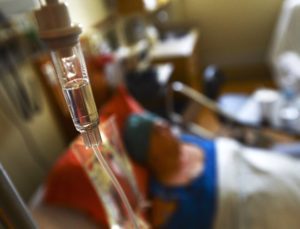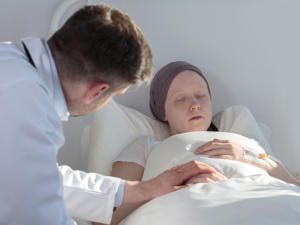
Dr. Francisco Siles Canales, a member of the staff at the School of Electrical Engineering marked a milestone for the study of health in our country. It is a new transdisciplinary integral space created to contribute to both the University of Costa Rica (UCR) and also the national community as a whole, in the development of specialized skills in minimally invasive surgery techniques. This has been forged by both teaching and research on medical sciences that are distinguished by the precision of knowledge and technical skills, as well as by the moral sensitivity and social solidarity of its professionals, most of whom are members of health institutions.
The laboratory, attached to the Teaching Vice-Rectory, will have a series of surgical anatomy, instrumental and laparoscopic equipment modules that respond to the need to support the learning processes in the use of new technologies and, at the same time, strengthen research and social action, expanding access and participation to this specialized knowledge by professionals from various areas in the biomedical sciences.
Having a laboratory that conducts research and diagnosis of some types of cancer in the earliest stages of this disease is qualitatively significant progress in the framework of medical care in our country. Not only will it facilitate a rigorous diagnosis at a suitable time to evaluate various treatment options according to the situation of each patient, but it could recommend suitable treatments according to each type of cancer and the state of its evolution.

In the national health authorities lies the enormous pressure from thousands of Social Security policyholders who require, with greater or lesser urgency these treatments. The fundamental concept is a study in precision medicine, also known as personalized cancer therapy. This is based on the recognition that each patient is different.
The technology against cancer …
After recent discoveries in the biology and immunology of cancer and the availability of the latest technologies, this extreme level of complexity can only be approached in a transdisciplinary way. The UCR has assumed this commitment by organizing a highly interdisciplinary group composed of experts in minimally invasive surgery, immunology, and molecular and cellular biology, bioinformatics, genomics, and biocomputing. This group will allow the training of students and teachers
Some of the first tests that will be available include the diagnosis of malignant transformation by the Papillomavirus, which will allow differentiating between a simple infection and the true disease that occurs when the virus is integrated into cellular DNA, avoiding over-treatment in more than 90% of women with this infection.
In addition, solid tumors will be studied to determine if a patient is a candidate to receive immunotherapy against this cancer, and a range of genomic tests for the characterization of tumors will also be included, thus supporting the choice of targeted therapies against these diseases and programs. of genetic counseling for people at high risk.

This system represents another commitment of the University of Costa Rica in the search for better living conditions for people, through the combination of a humanistic approach to health with cutting-edge research in priority areas. We invite all teachers and researchers of the UCR to submit teaching and research projects in the field.
The Costa Rican Institute against Cancer …
The objectives of the Costa Rican Institute against Cancer (ICCC) is the construction and implementation of a hospital complex specialized in cancer, which will be equipped with the most efficient technological advances, to give a treatment that allows greater survival rates. It also guarantees universal access to the services provided by the ICCC to all persons, without distinction of race, religion or socioeconomic status and to achieve an optimum quality in the services provided by the Institute, from a scientific, technological and human point of view.

This great oncological system is not going to exclude hospitals that already exist, on the contrary, what is sought is to reinforce them and that there is a Specialized Center of references for specific matters and that require the use of high technology.
The National Oncological System …
The National Oncology System seeks to satisfy the growing needs in terms of prevention, early diagnosis, timely treatment through surgery, chemotherapy, radiotherapy, or brachytherapy, with the latest advances that science has developed in the world. The project at this time comes to solve a very felt need in the Costa Rican population and the goal is to reduce the incidence of cancer, and that will only be achieved through prevention, screening and early detection programs. For people who are already suffering from the disease, they will be given full support programs.

